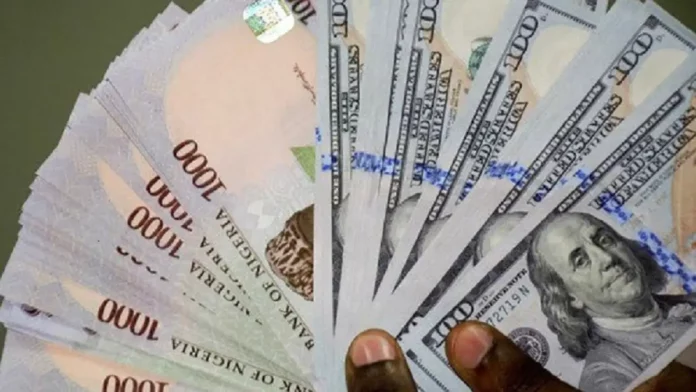Weakening foreign currency inflows into the Nigerian economy have raised foreign exchange pressures to another level in 2023. There is an apparent pressure across the FX market, forcing self-devaluation of the local currency over the gap between demand and supply.
In their separate audited results, manufacturers reported foreign exchange losses as Naira continues to lose its market position against the United States dollar.
In Nigeria, the US dollar remains the base currency for a large bucket of foreign exchange transactions. Though, there is an ongoing shift in the dollarizing economy. The tide has yet to shift in Africa’s largest economy by GDP size.
A number of countries are shifting attention to the Chinese Yuan while Asian countries mull Asian Monetary Fund, a development backed by Beijing. Brazil, including others, are dumping the US dollar as the sole base currency.
According to the National Bureau of Statistics (NBS), capital importation into Nigeria declined by 51.5% to USD1.06 billion in the fourth quarter of 2022.
Recall that capital inflows printed at USD2.19 billion in the comparable year in 2021 and it reached USD1.16 billion as at the end of the third quarter of 2022. Naira Lost 11% as Banks Issue New Update on FX Spending
“We believe the persistent slowdown in capital importation reflects foreign investors’ lacklustre interest in the country given an unclear foreign exchange framework”, Cordros Capital said in a note.
Analysts also noted that weakening inflow occurred due to an uninspiring macro narrative elevated global interest rates, and heightened global uncertainties.
NBS report showed that there was a broad-based decline across portfolio investments, foreign direct investments, and other investments.
In the period, portfolio investment inflows dropped by about 56% year on year to $285.26 million – a far distance from the pre-pandemic record. Also, foreign direct investment fell by about 76% to $84.23 million.
Other investments component of imported capital declined by about 42% in the same period to $691.23 million. On an annual basis, capital importation declined for the third consecutive year, dipping by 20.5% to USD 5.33 billion in 2022 from USD 6.70 billion in 2021.
Based on historical performance, analysts stated the amount imported was the lowest annual print since 2016 when a total sum of USD5.12 billion was received across investment conduits.
“While we believe a new government will be a breather for the country in the short term as sentiments are likely to improve,
“..we think foreign capital inflows will remain low compared to pre-COVID levels over the medium term in the absence of significant reforms in the FX, fiscal and monetary policy frameworks”, Cordros Capital stated.
According to the data obtained from FMDQ, total inflows into the Investors & Exporters Window rose by 59.2% to USD 1.49 billion in March from USD 937.60 million in February.
This was supported by local inflows which increased by 46.9% to USD1.20 billion primarily due to higher inflows from the CBN, exporters and non-bank corporates in the review period.
Forex inflow from the CBN rose by 240.3% in March, supported by a 7.2% increase from exporters’ receipts and a 50.9% monthly uptick from non-bank corporates inflows.
On the other hand, while foreign inflows rose by 2.4x to USD291.90 million, they remain significantly below pre-pandemic levels monthly average of USD1.56 billion in 2019, according to Cordros Capital Limited.
The inflow position has been wobbled by FX liquidity constraints, an overvalued currency, and the absence of significant macro reforms, analysts noted.
Over the short-to-medium term, Cordros Capital said it expects FX liquidity conditions to remain frail in the absence of reforms to attract US dollar inflows into the economy.
Analysts believe that the low FX liquidity conditions will also be driven by lingering global uncertainties and higher global interest rates, limiting foreign inflows to the economy.
Thus, foreign investors will need some convincing actions as regards flexibility and clarity in the FX framework going forward.

